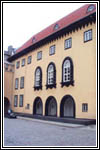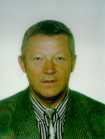 |
Vol 1, No 6, 2 August 1999
|
|
|
 T H E A M B E R C O A S T:
T H E A M B E R C O A S T:
Hitting the Bottle, and the Road Estonia's drinking problem Mel Huang
Several high-profile incidents involving alcohol and well-known politicians highlight the problem that alcohol poses for Estonia. Though alcohol has always been a significant part of Estonia's social culture, along with that of most of the world, these cases typify the growing problem of excess drinking - especially during the hot summer months. The increasing affluence of Estonians has also brought an undesired side-effect; as the number of automobiles has increased over the past few years, so too has the number of drivers under the influence of alcohol. Disorderly conduct At first, several incidents during the summer months involving politicians and drink provided some humourous relief from the heat and boring news days. Arder Vali, governor of Laane county, was sacked by Prime Minister Mart Laar after Vali allegedly "discredited" the position by being extremely drunk at a party and harassing women. The biggest case of all involved Rene Kuulmann, the head of Tallinn's property office, who allegedly assaulted someone while drunk on holiday. Though Kuulmann, who has been the target of reprisals by suspected underworld figures for his part in privatising the Tallinn Central Market to the advantage of another shady group, stated that he acted in self-defence when he dealt serious blows with a broken glass bottle to his victim. These three cases brought Estonia's problems with drink to public attention, and as a result Tallinn Mayor Peeter Lepp called for the dismissal of both Ivanov and Kuulmann. Drunk and in technicolour By the time two high-profile cases of drunk politicians behind the wheel emerged, no one was laughing anymore. First, former Tallinn deputy mayor and businessman Mait Metsamaa was involved in a horrific road accident which left two dead. Metsamaa is accused of causing the accident while seriously impaired by alcohol. Metsamaa's case prompted local dailies to print a list of other well-known politicians who have been caught driving under the influence. The list included parliamentarians, former cabinet ministers and a tipped favourite of the next presidential race. It did not help that a few days after the list was published, the chairman of the Coalition Party and former defence minister Andrus Oovel was nabbed doing over 150 km/h in a 90 km/h zone (no alcohol was involved here). This brought more worries for Estonians on the road, who lived in fear of out-of-control politicians behind the wheel of their Mercedes. 
For the few brave souls still left on the roads, the second high-profile case really brought the problem home and left them clamouring for their tram passes. Parliamentarian, former transport minister and former deputy Tallinn mayor Kalev Kallo was involved in a calamitous short trip fuelled by drink. Within a few city blocks of central Tallinn, Kallo managed to ram three parked cars before coming to a halt. The story gained wide public attention on account of the fact that a TV3 camera crew happened to catch part of the action, and the person who took Kallo's keys away when he stopped was the technical director of one of the leading dailies, Postimees. Later, the police announced Kallo's blood alcohol level was 3.43, equivalent to the consumption of half a bottle of spirits within a short time. The Technicolor broadcast of the incident brought the shocking act into every Estonian living room (for photos of the incident see the 23 July edition of Postimees). Not just a political problem Sadly, although their actions attract more press, the phenomenon is not limited to politicians. During their coverage of the recent wave of politicians under the influence, the media were also quick to report that in the first half of 1999, police stopped approximately 7000 drivers under the influence of alcohol. Inebriated drivers caused 25 fatalities and 176 injuries during that period. Such statistics highlighted the dangers of grabbing even a quick beer or wine in town before driving home to the suburbs. These outbursts cannot be blamed solely on this year's extremely hot summer in Estonia; rather, they are symptomatic of a worse problem which needs to be addressed sternly and quickly. One phenomenon which significantly exacerbates the problem is the fact that many of the increasingly affluent class refuse to use public transportation, opting for their own cars instead. In many ways one doesn't blame them, as Tallinn's mass transit system in the heavily-populated suburbs leaves much to be desired. The only shining star within the transport chaos is the vast amount of taxis in Tallinn, with relatively cheap fares. In contrast to places such as London (where finding a cab after 11pm is impossible) or Washington (where cab companies charge prohibitively high prices, especially to suburbs), in Tallinn it is not a blow to the pocketbook to take a cab home after having too many. Of course, places such as the Parking Lot Bar, which is located literally on a parking lot near the headquarters of the business newspaper Aripaev and just off a highway off-ramp, don't help the situation much. Estonia needs to examine its relationship with alcohol to prevent further tragedies. Draconian anti-alcohol attitudes and legislation along the lines of those in the United States would be the wrong step to take; rather, Estonia must develop a balanced approach based on moderation, better public transport, a stronger campaign against driving after any amount of drinking and healthier attitudes towards the bottle in general. Mel Huang, 29 July 1999
|
|
![]()
Copyright (c) 1999 - Central Europe Review and Internet servis, a.s.
All Rights Reserved
 Then, things became more serious when head of Tallinn's Mustamae suburb, Vladimir Ivanov, showed up at a Tallinn City Council meeting extremely drunk.
Then, things became more serious when head of Tallinn's Mustamae suburb, Vladimir Ivanov, showed up at a Tallinn City Council meeting extremely drunk.  Though the investigation is still in progress, the incident opened the eyes of the public, largely through the immediate condemnation it received in the press.
Though the investigation is still in progress, the incident opened the eyes of the public, largely through the immediate condemnation it received in the press.